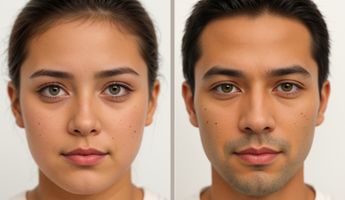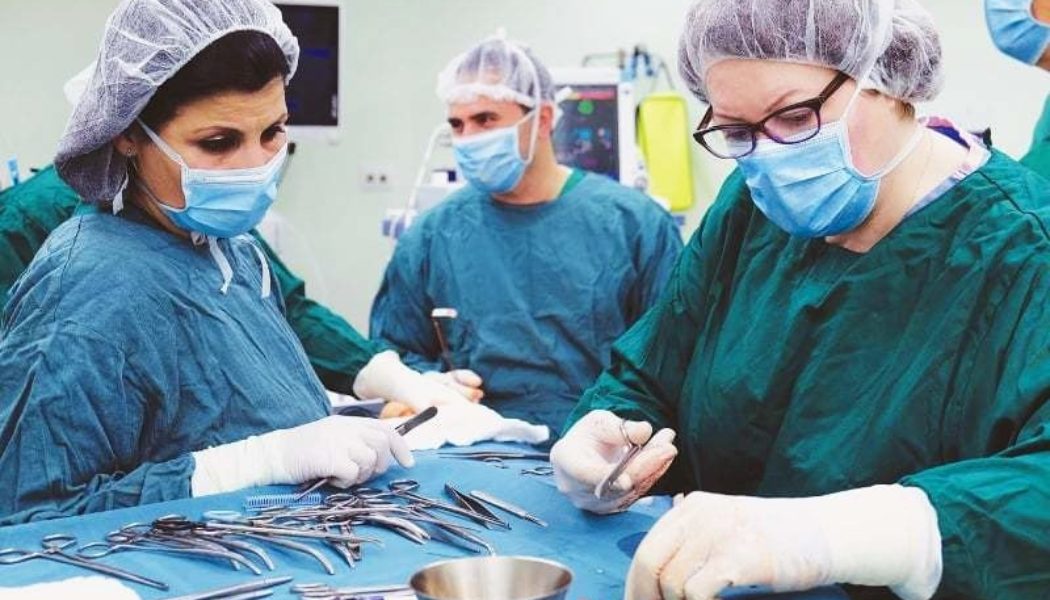Sex Reassignment Surgery (Female To Male) in United Kingdom
Search and Compare the Best Clinics and Doctors at the Lowest Prices for Sex Reassignment Surgery (Female To Male) in United Kingdom

Find the best clinics for Sex Reassignment Surgery (Female To Male) in United Kingdom
No clinics available
Thailand offers the best prices Worldwide
Price: $ 556

- Home
- United Kingdom
Compare Before & After Photos of _procedure_photos.phpSex Reassignment Surgery (Female To Male)


Half-side view


Front view


Half-side view


Front view


Front view


Front view


Front view


Front view
WHY US?
At Medijump, we're making medical easy. You can search, compare, discuss, and book your medical all in one place. We open the door to the best medical providers worldwide, saving you time and energy along the way, and it's all for FREE, no hidden fees, and no price markups guaranteed. So what are you waiting for?

Free

Best Price

Widest Selection

Risk-Free
What you need to know about Sex Reassignment Surgery (Female To Male) in United Kingdom

Some people are born male and some are born female. While there are some people who are transgender, whose gender identity does not match their assigned sex. Sex change surgery, also known as gender reassignment surgery (GRS) or sex reassignment surgery (SRS) is there to help these people. This is a surgical procedure that changes the sex of a person. It changes a transgender person’s physical appearance according to there identified gender. It treats gender dysphoria in these people. This includes both feminization and masculinization surgeries. In masculinization surgery, there are two domains:
- Top surgery
- Bottom surgery.
In top surgery, mastectomy is performed to remove the breasts and give your chest a more male-like contour. Bottom surgery involves increasing the length of the clitoris which is called metoidioplasty, production of a penis, and scrotum which are known as phalloplasty and scrotoplasty respectively, and removal of the uterus that is a hysterectomy. This surgery is not for everyone. A number of things are considered before opting for surgery. However, normal people with assigned gender can also go for this if they want to.
Before the operation, your assigned sex does not correspond to your gender identity. You suffer from gender dysphoria. You feel uncomfortable in your skin. However; after the surgery, you are a person of your desired sex. You are converted from a female to a male.
What is the cost of Sex Reassignment Surgery (Female To Male) in United Kingdom?
Like any intricate healthcare process, the price for undergoing Sex Reassignment Surgery (Female To Male) is not a fixed figure in United Kingdom. The final tally significantly sways due to issues like the patient's comprehensive health status, distinct surgical necessities, and the operating surgeon's level of proficiency. It's vital, too, to factor in the cost of post-procedure care, prescribed medicines, and extra treatments, all of which substantially contribute to the total expenditure.
Moreover, distinct clinics situated in United Kingdom might provide an array of payment structures or offer financial aid alternatives. It's advisable to undertake thorough investigations or reach out to prospective clinics directly to obtain a precise cost prediction.
What does a Sex Reassignment Surgery (Female To Male) Procedure Involve?
Anesthesia is given to ensure that the patient does not suffer from pain during the surgery. Top and bottom surgeries are performed differently.
-
Mastectomy: It is performed in two ways. In one method, an incision is given around the areola and excessive fat and breast tissue are removed through it. The skin is left as it is for a year. It retracts in this period of time. This method leaves prominent scars. In the other method, excess skin is also removed along with the tissue and fat. This leaves fewer scars. After this, male-like the contour of the chest is obtained.
In the other step, female reproductive organs that are present inside your body are removed.
-
Hysterectomy: Total Hysterectomy is the removal of uterus and cervix. Another surgery, bilateral salpingo-oophorectomy (BSO) is performed to remove fallopian tubes. In this way, the entire female reproductive system is eliminated from the body.
After this, procedures for the construction of male reproductive organs begin. They include,
- Metoidioplasty: Androgenic hormones are given to increase the length of the clitoris. Length is increased to almost 1.6 to 2 inches.
- Phalloplasty: It is performed to create a penis or to increase the length of it. It can be done in 4 ways. All of these work on the same principle. A flap of skin is taken from a donor site of the body such as an arm or abdomen to make a penis out if it. It is joined to the urethra. This is the most complicated step of GRS. An erectile prosthesis is inserted into the penis to achieve an erection.
- Scrotoplasty: Scrotum is produced from labia majora and prosthetic testes are inserted into it.
How Long Should I Stay in United Kingdom for a Sex Reassignment Surgery (Female To Male) Procedure?
It is a long procedure involving a number of surgeries. There is top surgery and bottom surgery. Mastectomy takes 2 to 3 hours in the operation theatre. While bottom surgery requires more time. It takes 8 to 10 hours for a female to male GRS. You should plan to stay in the area for at least 14 days after your Procedure, During this duration, your health conditions are monitored regularly and your stitches are removed after 10 to 14 days. You can go home when allowed to by your physician.
What's the Recovery Time for Sex Reassignment Surgery (Female To Male) Procedures in United Kingdom?
You will have to take 2 weeks off work. After 2 weeks, you can start a light activity and can go back to office work. A Patient will need more time to get back to physical work. You can start strenuous activity 4 to 6 weeks after bottom surgery. Pain killers are given in this period to deal with moderate pain. Scars take some time to fade away. It can take years after the surgery to settle both physically and psychologically.
What sort of Aftercare is Required for Sex Reassignment Surgery (Female To Male) Procedures in United Kingdom?
Following points should be considered to look after you post-surgery:
- Go for regular check-ups.
- Take your medicines as and when prescribed by the doctor.
- Live with someone who takes care of you while you recover.
- Abstain from sexual activity till allowed by your doctor.
- Do not take a bath or shower with bandages intact. It can cause infection.
- Avoid strenuous exercise in the early few days after surgery.
- Do not lift heavy objects; it puts pressure on your stitches.
- Avoid excessive movement. Take a rest.
What's the Success Rate of Sex Reassignment Surgery (Female To Male) Procedures in United Kingdom?
The success rate of Sex Reassignment Surgery (Female To Male) within United Kingdom depends on a spectrum of elements. Such factors encompass the proficiency and prior expertise of the surgical unit, the comprehensive health condition of the person, their mental readiness, and compliance with the suggested after-treatment attention. An abundance of research has pointed out that a majority of individuals who choose Sex Reassignment Surgery (Female To Male) acknowledge a marked enhancement in their lifestyle quality, elevated mental health, and a noteworthy contentment level with the physical transformations.
According to a study, 97% of the people who went through this surgery found their results satisfactory. You need to be sure before opting for it, as it is a lifetime decision. GRS is mainly for the treatment of dysphoric and transgender people.
Are there Alternatives to Sex Reassignment Surgery (Female To Male) Procedures in United Kingdom?
The following are some alternatives to sex reassignment surgery:
- Hormone replacement therapy: this therapy aids in changing your secondary sex characteristics according to your desired sex. In the case of female to male sex change, testosterone is given. This induces hair growth and coarseness of voice. It reduces breast growth and changes in fat distribution in your body. It also stops menstruation.
- Altering physical appearance: you can alter your physical appearance, your dressing, your hair, your makeup in accordance with your desired sex. Do regular exercises to build up muscle mass which will make you look like a male.
- Psychological counseling: it will make you handle your personality. Gender reassignment surgery cannot be reversed. Therefore, you should make your decision wisely.
- Cosmetic surgery: it is a wide field covering a number of domains. It can alter your facial features, your body fat, your waist, your stomach, your chest to transform you into your desired gender. You can go for liposuction, mastectomy, Botox, fillers, Rhinoplasty, etc.
All of the methods, mentioned above are not permanent but are helpful. For permanent change, you have to go for sex reassignment surgery.
What Should You Expect Before and After the Procedure
Prior to initiating the Sex Reassignment Surgery (Female To Male), it is necessary to ensure each individual undergoes thorough psychological analysis and counseling. These checks serve to affirm the patient's emotional readiness and ability to cope with the aftermath of the procedure. In addition to mental health evaluations, multiple medical assessments are implemented to inspect their overall health state. Recognizing any pre-existing health issues is of utmost importance as they can potentially impact the result of the surgery. Regularly scheduled consultations with knowledgeable healthcare professionals are fundamental to this process. These meetings will entail in-depth explanations and discussions to help formulate a holistic understanding of the entire procedure and its ensuing effects.
After the execution of the surgical procedure, there's a need for mental readiness for an extensive recovery period. This stage typically demands diligent post-procedure care and major lifestyle adjustments. Surgical recovery isn't typically a swift process - it's a path that entails physical changes and lifestyle adaptations, necessitating a period of adjustment for the patient. The adoption of healthy habits becomes particularly important during this period. Activities like regular physical activity, adhering to a nutritious diet, and incorporating stress-relief practices are proven to carry several benefits. Moreover, in addition to the emphasis on physical recuperation, mental health should also be prioritized equally.
What are Potential Risks of Sex Reassignment Surgery (Female To Male)?
Each surgical procedure comes with inherent risks and potential complications, including Sex Reassignment Surgery (Female To Male). These might encompass general surgical risks such as infection, bleeding, or adverse reactions to anesthetic drugs. Specific to Sex Reassignment Surgery (Female To Male), there may also be healing-related risks, which could result in necrosis or lackluster cosmetic outcomes. Educating oneself about the possible complications of surgical procedures is beneficial for better preparation.
Additionally, extended exposure to hormonal treatment might escalate the risk of cardiovascular ailments or osteoporosis. There could also be mental health concerns such as depression or anxiety, which may spring from society's responses or personal adaptation to a new identity. Frequent consultations with a healthcare professional are essential to keep track of and mitigate any possible risks or complications.
Whilst the information presented here has been accurately sourced and verified by a medical professional for its accuracy, it is still advised to consult with your doctor before pursuing a medical treatment at one of the listed medical providers
No Time?
Tell us what you're looking for and we'll reachout to the top clinics all at once
Enquire Now

Popular Procedures in United Kingdom
Prices Start From $497

Prices Start From $1,552

Prices Start From $500

Prices Start From $1,000

Recommended Medical Centers in United Kingdom for procedures similar to Sex Reassignment Surgery (Female To Male)

- Interpreter services
- Translation service
- Religious facilities
- Medical records transfer
- Medical travel insurance
- Health insurance coordination
- TV in the room
- Safe in the room
- Phone in the room
- Private rooms for patients available

- Interpreter services
- Translation service
- Religious facilities
- Medical records transfer
- Medical travel insurance
- Health insurance coordination
- TV in the room
- Safe in the room
- Phone in the room
- Private rooms for patients available

- Interpreter services
- Translation service
- Religious facilities
- Medical records transfer
- Medical travel insurance
- Health insurance coordination
- TV in the room
- Safe in the room
- Phone in the room
- Private rooms for patients available

- Interpreter services
- Translation service
- Religious facilities
- Medical records transfer
- Medical travel insurance
- Health insurance coordination
- TV in the room
- Safe in the room
- Phone in the room
- Private rooms for patients available

- Interpreter services
- Translation service
- Religious facilities
- Medical records transfer
- Medical travel insurance
- Health insurance coordination
- TV in the room
- Safe in the room
- Phone in the room
- Private rooms for patients available

- Interpreter services
- Translation service
- Religious facilities
- Medical records transfer
- Medical travel insurance
- Health insurance coordination
- TV in the room
- Safe in the room
- Phone in the room
- Private rooms for patients available

- Interpreter services
- Translation service
- Religious facilities
- Medical records transfer
- Medical travel insurance
- Health insurance coordination
- TV in the room
- Safe in the room
- Phone in the room
- Private rooms for patients available

- Interpreter services
- Translation service
- Religious facilities
- Medical records transfer
- Medical travel insurance
- Health insurance coordination
- TV in the room
- Safe in the room
- Phone in the room
- Private rooms for patients available

- Interpreter services
- Translation service
- Religious facilities
- Medical records transfer
- Medical travel insurance
- Health insurance coordination
- TV in the room
- Safe in the room
- Phone in the room
- Private rooms for patients available

- Interpreter services
- Translation service
- Religious facilities
- Medical records transfer
- Medical travel insurance
- Health insurance coordination
- TV in the room
- Safe in the room
- Phone in the room
- Private rooms for patients available
Sex Reassignment Surgery (Female To Male) in and around United Kingdom
About the United Kingdom
The United Kingdom is a constitutional monarchy comprising much of the British Isles. This Union is more than 300 years old and comprises four constituent countries: England, Scotland, Wales, and Northern Ireland. It occupies all of the island of Great Britain, the north-eastern portion of the island of Ireland, and most of the remaining British Isles. The UK is an island nation but shares an open land border with Ireland. The UK has a population of 65 million people, the capital and largest city is London.
The United Kingdom welcomes an ever-increasing number of medical tourists each year, many of which travel for Sex Reassignment Surgery (Female To Male) procedures. The government provides all British citizens free or low-cost care under the NHS, also known as the National Health System, leaving a small private sector for routine operations, which caters to people that do not want to wait in line for elective procedures or are not citizens or residents of the Islands.
Popular Parts of United Kingdom
Made up of Great Britain and Northern Ireland, the United Kingdom is filled with vibrant cities and tranquil countryside.
- England is home to London, United Kingdom’s largest city and capital which also serves as its financial center. Today, the country continues to be one of the most popular tourist destinations in the world. Although most tourists stay in London, the country actually has a plethora of attractions spread all over its cities. Tourists can check out Buckingham Palace, visit the Tower of London, explore Stonehenge, relax on the beach in Brighton, hike Hadrian’s Wall, or go museum hopping.
- Scotland is popular for its welcoming locals, beautiful parks, ancient architecture, spectacular lochs and mountains, and delightful whiskey. Its vast wilderness area is a great place to have some fantastic outdoor adventures. The country is rich in history and culture, which is evident in its hundreds of castles and historical sites. It also has glorious cities, such as Edinburgh, a city filled with parks, museums, cobblestone streets, and pubs.
- Wales might be tiny, but this green country offers countless opportunities for its inhabitants and visitors to escape into nature. The country is mainly mountainous, making it a hiker’s paradise. Its higher peaks lie in the north and central areas, including the famous Snowdon. Not only widely-known for its lush greenery, but the country is also a wonderful beach destination. In the summer, families will fill up the beaches to soak up the sun and kids will be running around in the sand. Wales’s beautiful landscape is complemented by stunning castles which should not be missed by any visitors.
- Northern Ireland is often overlooked by tourists, but once they arrive, they will be surprised by its serene scenery, friendly people, and scrumptious food scene. Giant’s Causeway, the country’s only UNESCO World Heritage site, has been attracting visitors from all around the world. It is a remarkable hexagonal-stone formation with an interesting magical tales behind it. Another popular attraction is the Titanic Belfast, a museum that provides nine galleries where visitors can discover the Titanic story. Visitors will be able to learn about the ship’s construction and get new insights into its disastrous demise.
Weather and Climate in the United Kingdom
The United Kingdom enjoys a temperate climate and has plenty of rain all year round. Tourists can visit any time of year as it does not experience extreme weather. There is a great variety of changeable weather, but the overall weather and seasons are generally the same throughout this sovereign country.
- The Spring months are from late March to early June and this season is known to be one of the best times to visit the United Kingdom because the weather is warming up and beautiful spring flowers are blooming and the temperatures range from 9 °C to 12 °C.
- Summer is from June to August and is the hottest season of the year but the temperatures rarely rise above 35 °C. Although rainfall will decrease during this season, prepare to find some rainy days. During this season, some cities like London experiences approximately 15 hours of sunshine.
- September to November is Autumn, and it has a variety of weather. The early months of September and October are still quite warm, but the temperatures will decrease in November. Typically, November is also the wettest month of the year.
- With an average temperature of 4 °C, Winter is the coldest season in the United Kingdom. The season can be wet and windy with frost and occasional snow. Winter also experiences minimal daylight. Despite the gloomy weather, it is an enjoyable time to visit the large cities because the tourist attractions are usually quieter and the cities can be very festive.
Getting Around in the United Kingdom
There are plenty of airports in the United Kingdom, but the busiest and the largest airport is the London Heathrow Airport. It is the second busiest airport in the world after Dubai Airport. The airport has international connections with almost every country around the globe, including countries in the Middle East, Asia, Africa, and North America. It also serves domestic flights which provide an easy way to travel around the United Kingdom. There are budget airlines that offer a more affordable option for those who want to get around by plane.
The United Kingdom is very well connected by plane, train, and bus. The train is the most popular mode of transport and one of the most comfortable. Tickets can be booked online and it can be expensive, but most trains are equipped with air conditioning and sometimes Wi-Fi. There are two classes of train, the Standard Class and the First Class. Big cities and towns are usually connected by a regular bus service. The cost can be cheap, but the further you travel away from a city, the more expensive the cost. It is best to invest in an Oyster Card if you wish to travel by bus.
Taxis are available in most cities. There are two types of taxis; the metered taxis (painted in black) and private hire taxis (known as minicabs). The taxis should have a taxi-license displayed on the dashboard. The metered taxis can be hailed directly from the streets, while the minicabs have to be ordered via telephone. The minicabs are usually more affordable than the metered taxis because they operate on fixed prices and sometimes are even open to negotiation.
Tourist Visas in the United Kingdom
Citizens of the European Union can enter the United Kingdom without a visa. Additionally, British Nationals who are not European Union citizens and nationals of 56 countries can enter and stay for up to 180 days (90 days if they enter from the Republic of Ireland). Citizens of Kuwait, Oman, Qatar, and the UAE can obtain an online electronic visa waiver (EVW). Other nationals not listed in the visa-exempt for stays in the UK (including China and Russia) need to apply and obtain a visa before entering the country.
Additional Information
- Local Currency: Pound sterling is the official currency (£). US$ 1 will get you £0.8.
- Money & Payments: International ATMs that allow foreigners to withdraw cash directly from their home account can be found easily across the United Kingdom. Credit cards are accepted in restaurants, shops, and hotels (mostly Visa and MasterCard). Tipping varies between countries, but generally optional.
- Local Language: English is the official language and spoken by approximately 98% of the population. A number of regional languages are also spoken (Welsh, Irish, Scottish Gaelic, and Cornish). There are also people who will speak some foreign languages, mainly French, German, and Spanish.
- Local Culture and Religion: Christianity is the most popular religion. However, more than 25% of the population follows no religion. Other religions such as Islam, Hinduism, Sikhism, Judaism, and Buddhism are in the minority.
- Public Holidays: There is a variation of public holidays in the United Kingdom. Typically, the countries celebrate New Year’s Day and Christmas Day.
Popular Searches
- Plastic Surgery in Thailand
- Dental Implants in Thailand
- Hair Transplant in Thailand
- Breast Augmentation Thailand
- Gastric Sleeve in Thailand
- Gender Reassignment Surgery in Thailand
- Laser Hair Removal in Bangkok
- Botox in Bangkok
- Dermatology in Bangkok
- Breast Augmentation in Bangkok
- Coolsculpting in Bangkok
- Veneers in Turkey
- Hair Transplant in Turkey
- Rhinoplasty in Turkey
- Stem Cell Therapy in Mexico
- Rhinoplasty in Mexico
- Liposuction in Mexico
- Coolsculpting in Tijuana
- Rhinoplasty in Korea
- Scar Removal in Korea
- Gastric Sleeve in Turkey
- Bone Marrow Transplant in India
- Invisalign in Malaysia
- Plastic Surgery in the Dominican Republic
- Tummy Tuck in the Dominican Republic
- Plastic and Cosmetic Surgery in Poland
- Rhinoplasty in Poland
- Hair Implant in Poland
- Dental Implants in Poland
- IVF in Turkey